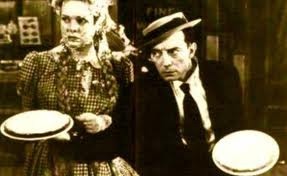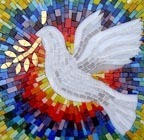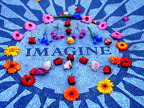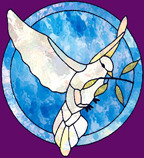Nancy Martin's Blog, page 12
September 13, 2011
Mothers-in-Law
Margaret Maron
<mother-in-law still lives.">>
When a good friend's fiancé told his mother that he was going to marry a shiksa, she said, "Fine. I'll be out in the kitchen with my head in the oven." She did everything possible to prevent the marriage and then spent the next 30 years trying to undermine it. She said such hateful things to her son, to my friend, and to her own grandchildren that I couldn't understand why they continued to let such a toxic woman in their lives. Now in a nursing home with deepening Alzheimer's, her face lights up when this previously-despised daughter-in-law enters her room. She grasps my friend's hand and says, "We've always loved each other, haven't we, dear?" My friend says, "I could weep that she never showed us this gentler side when it would have made such a difference."
<mother-in-law to a seaside resort for a month to get her out of his hair. Two days after she gets there, he receives a tweet from the resort manager: "Regret to say your M-i-L drowned and washed ashore covered in blue crabs. What shall we do?" To which the man tweeted back: "Ship the crabs and set ′er again.">>
 Another friend, I'll call her S., married into a rather wealthy family. His father was in the diplomatic corps and he was decent enough, but the mother made it quite clear that her son had married "down," and she loved to give formal dinner parties in the hopes that S. wouldn't know which fork to use, nor how to eat squabs or meringues. She had bursts of calculated generosity, followed by bursts of stinginess and she was a notorious for giving someone an expensive gift and then declaring later that it was only a loan. S. learned the hard way. The dragon lady gave her a pair of lavish brocade drapes when she redecorated the embassy, then asked for their return a year later: "I'm so glad you've enjoyed them, dear, and the room looks lovely decorated around them, but I need them back now."
Another friend, I'll call her S., married into a rather wealthy family. His father was in the diplomatic corps and he was decent enough, but the mother made it quite clear that her son had married "down," and she loved to give formal dinner parties in the hopes that S. wouldn't know which fork to use, nor how to eat squabs or meringues. She had bursts of calculated generosity, followed by bursts of stinginess and she was a notorious for giving someone an expensive gift and then declaring later that it was only a loan. S. learned the hard way. The dragon lady gave her a pair of lavish brocade drapes when she redecorated the embassy, then asked for their return a year later: "I'm so glad you've enjoyed them, dear, and the room looks lovely decorated around them, but I need them back now."
She decided that S. needed an "important" piece of jewelry and, upon the birth of her first  grandchild, gave S. a wide gold cuff encrusted with high-value gemstones. "It was really garish," S. said, "but I wore it to parties in an attempt to please her." A year or two later, when her m-i-l asked for the return of "that bracelet I lent you," S. said, "Certainly," and went straight to her jewelry box and gave it back. "Of course, I had taken the bracelet to a jeweler as soon as she gave it to me and had the stones replaced with imitations. After the divorce, my daughter and I lived on the proceeds of that bracelet for two years till I could get back on my feet."
grandchild, gave S. a wide gold cuff encrusted with high-value gemstones. "It was really garish," S. said, "but I wore it to parties in an attempt to please her." A year or two later, when her m-i-l asked for the return of "that bracelet I lent you," S. said, "Certainly," and went straight to her jewelry box and gave it back. "Of course, I had taken the bracelet to a jeweler as soon as she gave it to me and had the stones replaced with imitations. After the divorce, my daughter and I lived on the proceeds of that bracelet for two years till I could get back on my feet."
<>
Another friend's m-i-l has taken just the opposite tack. She thinks that her son married "up" and sneers that nothing she has or does is good enough for her d-i-l, who couldn't care less about such things.
So what about you? Did you luck into a lovely mother-in-law like mine or was she someone who could give the dragon lady a run for her money?
September 12, 2011
Could be the Transmission. Could be Cell Tower.
By Sarah
So, I'm driving my 20-year-old world traveler of a daughter to Logan the other day down I-89 when 
about about an hour into the drive, somewhere around Quechee, the "D" light on the dashboard of
my Honda Pilot starts flashing. No sound coming from the front or rear ends. No change in power. Just a freaking flashing D.
Now, this is the first automatic I've ever owned. You had no choice with the Pilot which Honda figured would be driven by sedentary, lazy mothers like me. But after talking to a mechanic, I've been thinking there's more to it. Something to do with computers. Because after I pull off in a panic and call my husband (No. Help. Whatsoever.) who tells me it's nothing and to Google it on my iPhone if I'm concerned, I call down to Grappone Honda in Concord, N.H. ,where I bought the car all the way back in 2004. (Going on 127,000 miles, thereby beating my frugal parents own record of keeping cars for at least seven years.)
Fortunately, there is still a mechanic on the premises as it was Saturday and they closed by three. I tell him the problem - simple enough, right? - and he gives me not one, not two, but at least four possibilities. And here all I want to know is if I can make it to Boston in time for my daughter's international flight.
"Could be the transmission," he starts, immediately sending my adrenaline spiking. Transmission? I'd heard horror stories of people driving cross country, their transmissions failing for no reason  and them being stuck in the scalding desert with buzzards circling overhead. "Could be a loose connection. Probably a loose or corroded connection with the sensor."
and them being stuck in the scalding desert with buzzards circling overhead. "Could be a loose connection. Probably a loose or corroded connection with the sensor."
I relax a bit. Everything in this car is corroded from driving on miles of salt-covered roads in the winter. This is nothing new.
Then he says, "Could be the oil. You low on oil?"
"I don't know. Wouldn't the oil light come on?"
He sniffs. "Not necessarily."
Okay, I think, check the oil.
"Then again," he adds, "could be cell towers. They can mess with the communication system."
Seriously? "Cell towers?" He's screwing with me. I can imagine the other mechanics stiflling guffaws. He told her it was the cell towers! "You're making that up."
"Ma'am, there's lots of stuff going on you have no idea."
Guess so. Anyway, the point pertinent to him is that he'll be closed by the time I hit Concord. Final advice? Drive for a few miles. Maybe one. Maybe two. If the light starts flashing again, call a tow truck. It's over.
Let me just pause in the story to note that it is approximately 2 p.m. My daughter's flight to Rome  does not leave until 9:45. Call me neurotic. Call me a Nervous Nellie, but THIS is why I allot so much time to get to the airport, for emergencies. My people are Lithuanians well-schooled in the philosophy that if anything shitty can happen, no matter how remote, it will. Example: no one expects Cossacks to kick down the door in the middle of the night, dragging you to your death. My people did. And that is how I am able to write you today. I am the product of survivors.
does not leave until 9:45. Call me neurotic. Call me a Nervous Nellie, but THIS is why I allot so much time to get to the airport, for emergencies. My people are Lithuanians well-schooled in the philosophy that if anything shitty can happen, no matter how remote, it will. Example: no one expects Cossacks to kick down the door in the middle of the night, dragging you to your death. My people did. And that is how I am able to write you today. I am the product of survivors.
And, somehow, this applies to the Pilot which has been mostly trouble free aside from a prior drama over the Check Engine light. (Who here has not suffered through a Check Engine light?) This is where I miss my friend, Trish, who again talked me off the ledge when the Check Engine light suddenly appeared during a cross-New York State trip on a book tour. No, it wasn't that I hadn't tightened the gas cap past three clicks. ( I KNEW you were going to say that.) It was because my O-rings were shot. So there.
This was different, however. Check Engine I could handle. A flashing light I could not. I added a quart of oil, got back on the highway and the light remained a solid happy green D, once again proving that 99% of electrical problems can be solved by unplugging or turning something on and off. Alas, just as Anna and I were laughing about cell towers, the D started flashing again at 22 miles in.
Ignored it. Like Charlie said.
Sailed into Logan. Turned off car to drop Anna curbside at airport. Turned it on. Solid green and it has been so ever since.
So, what to make of this? Are the computers that control our cars - and our lives - sending us to a premature death? What good is a warning system if the warning system causes us to have a heart attack at the exit for Storrow Drive? What good is having a witch for a daughter who inherited her grandmother's propensity for fizzling electronic items?
And what to do with a husband you could have clobbered who turns out to be right?
Sarah
P.S. On the way back from Boston, I passed "Hillbilly Highway," the makeshift on and off ramp onto  I-89 that was cut through a Royalton farm on a road washed out by the flood. Had it not been for this, locals would have been trapped. Best part? The owner of the farm, instead of being pissed, set up a farm stand and sells sunflowers and tomatoes for the new "commuters."
I-89 that was cut through a Royalton farm on a road washed out by the flood. Had it not been for this, locals would have been trapped. Best part? The owner of the farm, instead of being pissed, set up a farm stand and sells sunflowers and tomatoes for the new "commuters."
Changes
by Heather
Well, you know all good things come to an end, but you hold on. And time still goes by.
As in children growing up.
I know you have to let go. I've done that. No, really. Okay, sorta, maybe, just a little. I want them to have the best life possible. I just wish it could be with them all somehow kids forever and with me. Impossible, I know.
Summer comes, and it's great, because I know I'll get to see all of them. A number of the conventions are in the New York or New England area, so I'll get to see 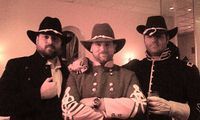 Derek, one of my 3 sons. And Chynna, my youngest daughter, is home from college.
Derek, one of my 3 sons. And Chynna, my youngest daughter, is home from college.
So the summer started off with a bang. Convention city. And it always ends with a convention, my own benefit, "Writers for New Orleans."
But after that, bringing Chynna back to school.
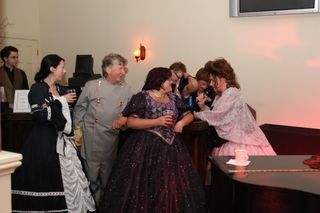 In New Orleans, we're so busy that we don't know what we're doing. We try very hard to provide great panels and great night life, so there are a million things to set up. These are things I'd be totally incapable of doing alone, so, thankfully, amazing Louisiana friend Connie Perry does all that. But there are the little things. Like discovering that although I'd spent a week writing the bios for "Bourbon Street Bash, Know Your Civil War Characters," a theme party thrown by Kathy Love, Erin McCarthy, and F. Paul Wilson, we hadn't seen until Kathy is trying on her costume that Julia Dent Grant had suddenly turned into Judy Dent Grant on the cover.
In New Orleans, we're so busy that we don't know what we're doing. We try very hard to provide great panels and great night life, so there are a million things to set up. These are things I'd be totally incapable of doing alone, so, thankfully, amazing Louisiana friend Connie Perry does all that. But there are the little things. Like discovering that although I'd spent a week writing the bios for "Bourbon Street Bash, Know Your Civil War Characters," a theme party thrown by Kathy Love, Erin McCarthy, and F. Paul Wilson, we hadn't seen until Kathy is trying on her costume that Julia Dent Grant had suddenly turned into Judy Dent Grant on the cover.
We redid the booklets, finding a few more mistakes along the way. (And still missed the fact that someone died in 1995 instead of 1885!) Ah, well.
But there was also Helen Rosburg's "Angelique" champagne reception to get ready--although weather kept Helen herself from flying in. 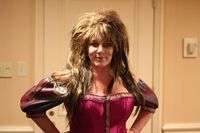 Then, setting up our amazing band--and they were amazing. F. Paul Wilson again, my friend--and vocal coach for many an American Idol finalist!--Mary Walkley, Chris Croteau, a professional who stumbled in through friend and poet Corinne De Winter, Greg Varecchio, husband of writer Jennifer Hughes, and Bobby Rosello--lifelong friend dragged along. Wow. What they managed in two days--never having worked all together before--was amazing. And there were the rehearsals with the cast, of
Then, setting up our amazing band--and they were amazing. F. Paul Wilson again, my friend--and vocal coach for many an American Idol finalist!--Mary Walkley, Chris Croteau, a professional who stumbled in through friend and poet Corinne De Winter, Greg Varecchio, husband of writer Jennifer Hughes, and Bobby Rosello--lifelong friend dragged along. Wow. What they managed in two days--never having worked all together before--was amazing. And there were the rehearsals with the cast, of 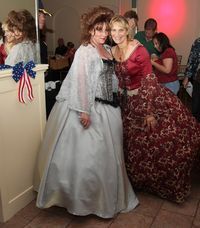 course, for "Civil War Zombies for Peace" (including our Harley, another true professional who somehow allows herself to indulge in twenty-four hour low-budge dinner theater, and Alex Sokoloff, and Vegas entertainers Lance Taubold and Rich Devin and a lot of my family. And Connie's family. We don't call it interactive for nothing.)
course, for "Civil War Zombies for Peace" (including our Harley, another true professional who somehow allows herself to indulge in twenty-four hour low-budge dinner theater, and Alex Sokoloff, and Vegas entertainers Lance Taubold and Rich Devin and a lot of my family. And Connie's family. We don't call it interactive for nothing.)
My little nephews are there, a little freaked out when see Auntie Heather 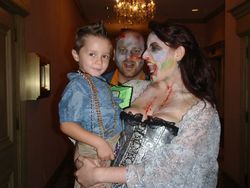 and the rest of the family in zombie make-up, but, hey, they're troopers.
and the rest of the family in zombie make-up, but, hey, they're troopers.
The panels, thankfully, are managed by other friends and include great authors and editors. It was a challenge this year because Irene was rolling around out there. It never got bad, but it was pretty wet. Luckily, attendees were undaunted.
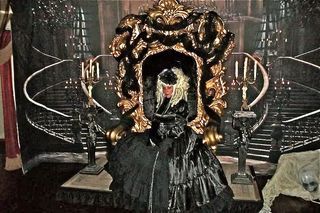 The last night was a trip to the Haunted Mortuary. It wasn't open at the time, but they arranged a "behind the scenes" tour for us. No actors yet to jump out at people, but . . . I'm not sure I'd manage it if there had been. The place was used as a mortuary for many years, and the original embalming room remains,and a crematorium--it was a "full service" mortuary. If you're in New Orleans any time around Halloween (or Christmas! Turns into a great place for little ones!) you must go--it's truly scary and amazing.
The last night was a trip to the Haunted Mortuary. It wasn't open at the time, but they arranged a "behind the scenes" tour for us. No actors yet to jump out at people, but . . . I'm not sure I'd manage it if there had been. The place was used as a mortuary for many years, and the original embalming room remains,and a crematorium--it was a "full service" mortuary. If you're in New Orleans any time around Halloween (or Christmas! Turns into a great place for little ones!) you must go--it's truly scary and amazing.
The point is that the whole thing is crazy and busy, and there isn't time to get weepy.
Then . . . .
Then it is time to get weepy. It comes to an end, and Dennis and I take off in a plane to take Chynna back to California. My son Derek and daughter-in-law have already flown back to Connecticut, and the rest of the family is headed to Miami.
 I know how to let go. I know to be a grown up and allow my children to fly and have great lives and go where they need to go and do what they need to do.
I know how to let go. I know to be a grown up and allow my children to fly and have great lives and go where they need to go and do what they need to do.
It doesn't mean that I don't get to cry when they fly away.
September 10, 2011
This Day to Remember.
Where were you on September 11th? What do you remember?
I was awakened earlier than usual to be told that a close relative was in the hospital with a broken hip, so when I flipped on NPR to catch the morning headlines and heard that a plane had crashed into the Trade Center, I immediately turned on the television and was shocked to watch as that second plane went in. The first could have been a weird accident; the second was clearly deliberate, but who? why? The horror continued as I flashed on the few times I'd taken an elevator up to one of the towers' high floors. How long it took even on the express. To think of trying to walk down through smoke and fire . . .? Ghastly. In addition to all the people who died that day, there were even more deaths to come. Of the two close friends who lived in lower Manhattan, I'm convinced that breathing those contaminants for months caused the death of one and hastened the end of the other even though neither was in the building itself.
I was living on a mountaintop in rural Virgina--alone because my husband had already moved back to Pennsylvania for a job. Between writing the last chapter of my first mystery, I was packing boxes that morning and watching the Today show. With packing tape in my hand, I heard Katie Couric's incredulous voice saying, "We don't want to alarm anyone, but it looks as if a small plane may have crashed into the World Trade Center." And while I watched, the second plane hit. I thought, "My daughter is in New York," and you know that expression "my blood ran cold?" Well, that's how I felt---as if a terrible block of ice hit my chest and spread through my veins all the way to my fingertips.
An instant later, the phone rang, and the voice of my great friend (and backblogger!) cried, "Are you seeing this?" It was just like our mothers telling us about Pearl Harbor. We couldn't believe it. The sky was so blue and perfect. For hours, I kept trying my daughter's phone, but of course it was out. Thank God for Ethernet. When she got back from class, we emailed, and she begged me to phone her boyfriend's mother in DC. Her boyfriend had been on a plane from New York that morning, but I couldn't make the call. I kept thinking he'd been in the plane that crashed into the Pentagon. I couldn't call a mother whose son had died. But he was already on the subway in DC when the plane went down, and he reached my daughter by email within a few hours.
My mother called from Pennsylvania. Her voice shook. "An airliner flew over the golf course. It was so low, we thought we could reach up and touch it." That was minutes before it crashed. When I phoned my husband--already at his new banking job--he said in amazement that the guys he'd been doing business with the previous day weren't answering their phones. They worked for Cantor Fitzgerald. My sister, in Brooklyn, said her front steps were covered in burned bits of paper with the Cantor Fitzgerald letterhead.
That night, alone in the house on the mountain, I heard a tremendous roar of powerful engines down in the valley. It went on for hours, and the concussion rattled the windows of the house. I was afraid to go outside to listen by myself, so I took the dog, and Dolly and I stood on the lawn, listening in the dark. Dolly leaned against my leg. I remember how warm she felt, and comforting. Turns out, all the east coast railroad companies had sent their locomotives to hide in the old coal yard in the town below. To be safe from terrorists. Terrorists! What was a terrorist?
I remember how we all felt in the weeks that followed--joined in a common spirit. Makes the current Congress look so self-absorbed and petty. If nothing else, I'm glad we have so many stories of heroism and patriotism and unity from that terrible day.
I had been on a very challenging hiking trip in Provence, and made it home on September 11 at 3 am Colorado time. I awakened to the phone ringing, and it was my grandmother calling to be sure I was home. She said, "Oh, thank God you are not on a plane. I didn't know when you were coming in. They've bombed the Pentagon." I thought she was being alarmist, but turned on the television to see the towers smoking after the first plane hit. The calls continued all morning--my family calling to make sure I was actually home and not on one of those planes. I have a lot of friends in NYC, but my thoughts that morning were for the friend I'd gone hiking with. She was stranded in Paris, alone, because she'd taken a later flight than I did, and didn't get home for two weeks.
The story I think about the most is one from an editor I was working with at the time. She lived in the village and couldn't get to her apartment for quite some time. When she finally got back, she said the smell was awful in the neighborhood and she commented to her boyfriend that it smelled like rotten garbage all the time. He said gently, "Honey, that's not garbage."
From Hank Phillippi Ryan:
It was a beautiful, beautful day on the East Coast, as you remember, too, Nancy. And chillingly, as it turned out, that's one of the reasons the plot could work--because it was so clear that it allowed the terrorists to see the towers.
I was--crazily--at the hairdresser, getting a hair cut. That night was my station's preview party for the upcoming TV season, and we were all sprucing up. Someone came running in, saying something incomprehensible, and then the news came flooding in. I had wet hair.
I knew I had to get to work, GET TO WORK as soon as possible. As a reporter, this was...well, it was work. Separating the journalists from everyone else. I called Jonathan, yelling over the sound of the blowdryer. Yes, he knew. Are the kids okay, in Park Slope? Our step-son works in the city...yes they're okay. I don't know when I'll be home, I said. (And I will admit, what I really wanted to do was go home.)
I walked to work, maybe 4 blocks, in that beautiful day. The bars were all open on Congress Street, all the glass fronts wide open, all the televisions on. I remember, so clearly, deliberately walking slowly. Thinking, so clearly, so clearly, "this is the moment our lives are all changing. When I get to work, our lives will never be the same."
(Ridiculously: I'm the investigative reporter, you know? And my boss came racing into my office. "How did this happen?" he yelled. "You and Mary (my producer) have to find out how this happened!" As if we could do that. I think we stayed in the office for the next--three days? And every time we started to complain, we'd look at each other and say: "We're not dead. Not dead." And then go back to work.)
From Sarah Strohmeyer:
Yes, it was a beautiful September morning and I'd just sent the kids off to school and sat down to write. We'd recently redone our computer system and installed a New York Times news alert. So many ways to procrastinate! Oddly enough, the first message that popped up was from my childhood friend, Connie Jordan, whom I hadn't spoken to in, gosh, ten or more years.
Connie is a smart, beautiful woman, a Swarthmore/Harvard grad and Presbyterian minister whose husband survived a nasty bout of cancer early in their marriage. I've often thought of Connie as being deeply spiritual - though we occasionally butted heads over different interpretations of Christianity. Anyway, I'm still moved by the randomness - or not - of hearing from this woman of God just as my New York Times news ticker started firing bulletins about a plane crashing into the twin towers.
The bulletins were confusing. First it was a small plane. Then it was a jet. Wait, something was going on in D.C.? Was that another plane in New York? Or the same one? I remember thinking that it was probably a joker pilot. About a month before, a single-prop plane had flown precariously close to high rises in Manhattan and in flying from Manchester to New York, our little commuter flight often followed 5th Avenue. You could even see people working in their offices.
But this was different.
Finally, I wrote Connie this: "Something's going on."
Connie wrote back. "I know. But what?"
"It's bad," I wrote back, getting chills as the bulletins became more alarming. A missing plane in Pennsylvania. Reports of a small plane flying into the Pentagon. More planes missing.
"I have to pray," Connie said. And that was it. I've never heard from her since.
I called Charlie at work and he was just getting the news. I flipped on the TV and there was Peter Jennings, smoke swirling from the twin towers in another frame. I told Charlie to come home immediately, that the towers were on fire. I thought of all my friends in New York, of the husband of my daughter's godmother who worked at Merrill Lynch. Like Connie, I prayed.
And then the unthinkable. The first tower fell, just crumbled like a house of cards. Peter Jennings went dead silent as Charlie came through the door and I looked at him and said, "We'll never be the same."
All those people. Gone.
From Elaine Viets:
Silence.
That's what I remember most after 9-11. Don and I lived in a beach condo in Hollywood, Florida. After the attack, the airport was closed for weeks, silencing the constant drone of commercial flights.
Instead, the skies were patrolled by sinister black helicopters. Warships cruised offshore, some with the ominous bulge of nuclear weapons.
Three of the terrorist leaders moved to Florida in 2000, near our home. South Florida is an international community, and they blended in. They used our local library, where the computers are free to all. They made one of their last appearances at Shuckums Oyster Bar in Hollywood, where at least two "holy warriors" drank forbidden alcohol – screwdrivers and rum and Coke. You can make what you want of this: They ate chicken wings.
Twelve hours after the attack on the World Trade Center, the FBI flashed their photos around the bar. The Shuckums' server remembered them – and their lousy tip.
From Heather Graham:
9/11
The very words will, for everyone old enough on the day, be horrible and poignant. And no matter how much time passes, we all know where we were and what we were doing on that date.
For me, I was mourning, and cleaning out mother's house with my sister; we had lost her just weeks before. And one of the things that kept running through my mind was at least she doesn't have to see this.
But my mom's passing became back-burner; I hadn't seen a TV. I was driving to a store to buy cleaners when a friend called me and frantically told me not to go to downtown Miami. At the time, I never went downtown, and I thought she'd spiked her morning diet coke. Of course, when she told me that two planes had hit the towers, I immediately started trying to reach my third son--he was going to Pratt Institute in Brooklyn at the time, and the kids there were always on the Path train to reach the store where they bought their art supplies. I was frantic, trying to reach him. His cell went straight to a dull tone.
I rushed back and got on my computer and I was amazed when I got an instant message. He was on the roof at Pratt and miraculously, his Internet was up. He was alright; he was feeling his gut wrench as he and fellow students watched the towers burn. Suddenly he wrote, "OMG! It fell, it fell!" And I didn't know what he was talking about, until he explained, "It went down; the whole damned tower went down. Oh, God, oh God."
The day that travel was allowed again, Dennis and I got on a plane and flew to New York; I had to see him, and friends in the city who had lost loved ones. If I didn't get on a plane, I could never suggest that anyone else ever do so again. I was terrified getting on that plane. It turned out to be Dennis and I, a few scattered people, and about ten pilots heading up to start commercial travel again. I'll never forget flying by the place where the towers had been--and the ground was still smoldering.
I'd considered myself a student of history, and I had thought I'd known something about terrorism; my mom and her family left Dublin because they were "mixed" and the "troubles" continued. But I had never understood the kind of hatred that could make anyone massacre so many people so blindly. I'd been to Egypt, I had friends who were Muslim. And I had to make myself realize that while their was a culture of hatred--quite possibly the result of poverty and misery as so much hatred was--was not the culture of everyone.
Today, I know that we often wonder what our men and women in the service are accomplishing because it's true that you can't kill and ideal. But I was with a young serviceman the other day who told me, "You don't get to see the good very often on TV. I was there when we opened a new school, and the parents and the children were grateful and wonderful. Building and giving, yes, we can make a change."
So what do we do in our world today? We defend ourselves. We learn how to do that through intelligence. We suffer, because we can't stop everything. We keep trying to be the country we began to be after the Civil War, seeing all people as equals. It's so easy to hate. And I hate fanatics of any kind who would do harm to others; I pray that I never do so blindly, and I always judge a person for the person they are. And because I really have no control, I pray for our men and women in the service, and I pray for all who are caught in the violence brought upon them by others. Most of all, I pray that we stop being such a party-determined society, and that our law makers can stop following party lines, and work hard to defend and strengthen out country, and show others, through our united front and efforts to benefit all mankind, that we should be emulated, and not alienated, assaulted, and attacked.

From Joshilyn Jackson:
I went downstairs to get coffee and I turned on a little television I had on the kitchen counter. There was the first tower, with the plane going into it.
I immediately called my friend Lydia Netzer and said, Turn on your television, because I didn't want to be watching alone. They showed it over and over. It seemed crazy and impossible. We began coming up with explanations for it, back and forth, two fiction writers constructing implausible scenarios, looking for a way it could have happened. We were like children telling each other fairy tales ---- pilots having strokes and electrical instruments going haywire, anything to keep ourselves from understanding.
The second plane came. We saw it happen.
Then we knew. There wasn't any way to not know. This is on purpose, we said back and forth to each other, but only because there was no other explanation left. We had tried so hard to make it be Fate---God---Accident---Error, anything at all. Anything except a deliberate, human choice.
From Brunonia Barry:
I worked at the World Trade Center for several years in the mid-seventies, soon after it opened. I was in the accounting department of Toyoda America, Inc. on the fiftieth floor of the North Tower. It was one of my first jobs out of college, and I loved the whole experience. But most of all, I loved the WTC. It was like a small community. I was there when Phillippe Petit walked the tightrope between the towers.
Windows on the World had not yet opened, and, for a short while, we were allowed to take our lunches up there and enjoy the view from the top floor. A small group of us representing many different companies lunched there most days, until the construction crews put an end to our visits. After that, we all continued to meet for lunch at the restaurant on the 44th floor.
I was our company's fire marshall, and used to lead the employees in monthly evacuation drills, things they sometimes participated in and sometimes refused to take seriously. Thankfully, my friends at Toyoda had relocated their company offices a few years before the towers came down, but there were others I knew there who remained, friends who were lost.
Ten years ago on September 11th, I was in the hospital undergoing emergency surgery. I remember the television and everyone huddled around staring. I remember hoping that I was hallucinating from the medication, and then realizing that it was not a dream. In the ten years that have passed, I have not visited the site. It's still difficult for me to think about, as it is for many of us.
September 9, 2011
Volunteering: Causes, Passions and the Salem Lit Fest
Volunteering: Causes, Passions and the Salem Lit Fest
By Brunonia Barry
I don't know about you, but these days, I seem to be volunteering for more than ever before. This is something I'm happy to do, but I'm finding myself spread far too thin. As a novelist who only made her last deadline by forty-five minutes, I'm now hesitating to take on any new projects.
I am already involved in a variety of passionate causes, one of my favorites being The Women's Lunch Place in Boston, a daytime shelter that provides refuge and services for Boston's homeless and poor women and children.
Then there is teaching. I do some writing workshops, and visit local high school English classes to talk to students about writing and literature.
I have joined boards to preserve historic landmarks, committees that provide scholarships, fund raising efforts to end domestic violence. The list goes on.
But sometimes (alright many times, if I'm being honest here) I'm just exhausted. I can't take on one more thing. There aren't enough hours in the day. It's a good thing I sleep a lot less than I used to, but, frankly, there aren't enough hours in the night, either.
So it was a surprise even to me when I said yes to yet another project, one that has required more time from me than all the others combined. This year I agreed to co-chair the planning committee of the Salem Literary Festival.
"Are you insane?" was my husband's question. "Probably," I answered. If I had known what would be involved, I might not have continued. But the Salem Literary Festival is one of my all time passions, and I wasn't about to let it die. And that's just what would have happened, if it weren't for a group of dedicated volunteers (one of whom turned out to be my husband).
When Salem's independent bookstore, Cornerstone, closed last year, one of the less obvious casualties was the three-year-old Salem Literary Festival, which was started and anchored by the bookstore. It was a great festival for both readers and writers.
Salem is the ideal city for a lit fest. It's small, walk-able, beautiful, and it has some of the best historic architecture in the country. Touted as the birthplace of the great American novel (a legacy left by Nathaniel Hawthorne, our native son), Salem has a rich and enduring literary tradition. Add to that Salem's other American firsts: first millionaire, first candy store, first brick house, first elephant. (The elephant evidently had a drinking problem, but that's a story for another day.) Salem's full of quirky places and creative people, the perfect combination. We were determined to see the festival continue.
First we recruited more volunteers. The Spirit of '76 bookstore in Marblehead offered to stand in for Cornerstone. We held committee meetings at my dining room table. We secured historic venues including The House of the Seven Gables, the Salem Athenaeum, the Phillips House. Even the Peabody Essex Museum (PEM) made room for us.
We were a bit less lucky with hotel rooms. The Lit Fest runs from September 23-25, but we found ourselves blocked by Halloween visitors who seem to come to town earlier every year. There wasn't a hotel room to be had. Well, actually, there was exactly one. We grabbed it.
When I tell you that our committee meetings have been stormy, I am being literal. Our second meeting was spent huddled around a television set in our kitchen watching the news. A tornado was ripping across Massachusetts. Our founder's husband and daughter were stuck at home in their basement, waiting out the storm.
We wrote the festival brochure during hurricane Irene with a copywriter who lived near New Hampshire's Mount Washington and kept losing power and a collaborator who had no electricity for three days. Somehow we managed. We picked up the printed brochures last Wednesday amid renewed rains and flooding.
Besides working on the brochure, my assignment was securing writers and creating events. Erin Morgenstern, writer of The Night Circus (written while she lived in Salem), and Lipstick's own Joshilyn Jackson will be our keynote speakers. And speaking of The Lipstick Chronicles, we are hosting a panel on Sunday September 25th featuring Hank, Cornelia, Heather, Sarah, Joshilyn and me. Believe it or not, it will be the first time some of us have met.
All in all, we have over fifty authors and many great events. Check it out at http://www.salemlitfest.com/schedule.
If you're anywhere near Salem the weekend of September 23rd, please come. We'd love to see you. And for any of you writers out there, we have an open mic session at Gulu Gulu café on Sunday at 4PM. We welcome your participation.
This is one volunteer job that will soon come to an end. I'm sure I will feel simultaneously exhausted and exhilarated. And even though I swore I would never do it again, I will undoubtedly volunteer again next year. After a short break, we're planning to have a meeting to discuss next year's lineup. Knowing New England and our stormy history, I figure it will probably snow.
So what kind of things are you passionate about? What inspires you to volunteer?
5 Simple Ways to Save the World
On Sunday evening, I had friends over for a summer supper. We sat on the back patio and ate corn on the cob and potato salad and lightly fried squash and tiny sweet tomatoes. The ears of corn were not all exactly 10 inches long and evenly covered with kernels from end to end in straight 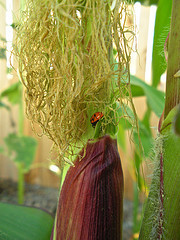 rows. They were 3 inches long, some of them, and plump to bursting. One had zigzagging rows that were nonetheless juicy and delicious. Two ears were long and elegant, the race-horses of corn, which I gave to our guests. I picked them from my garden an hour before the guests arrived, along with the tomatoes—I had hoped some of the little yellow pears would be ready, or at least one or two big romas, but only the Sweet 100s were ripe. (In a week, I'll be drowning in tomatoes, of course, but I will sun-dry them). The potatoes were a particular thrill—I grew three bags of them for the early crop, leaving these for last. They were white potatoes, some two full pounds each, their skins as thin as the membrane over an egg white.
rows. They were 3 inches long, some of them, and plump to bursting. One had zigzagging rows that were nonetheless juicy and delicious. Two ears were long and elegant, the race-horses of corn, which I gave to our guests. I picked them from my garden an hour before the guests arrived, along with the tomatoes—I had hoped some of the little yellow pears would be ready, or at least one or two big romas, but only the Sweet 100s were ripe. (In a week, I'll be drowning in tomatoes, of course, but I will sun-dry them). The potatoes were a particular thrill—I grew three bags of them for the early crop, leaving these for last. They were white potatoes, some two full pounds each, their skins as thin as the membrane over an egg white.
As we feasted, I thought back over how much time and energy it took to grow this much food, enough for a single meal for four people. I started in March, with seeds under grow lights, and planted in May, and all these months since, the sun and the rain and the winds have come, day after day. I pulled weeds and fretted over onion grubs.
It's humbling, and illuminating.
We all know the food delivery system is broken, a side effect of industrialization and subsidization. It seemed like such a great idea—feed everybody cheaply and easily!—but in theory, it isn't working out. We all hear the stats—children are fatter, we are fatter, we are less healthy, and meanwhile, Somalia starves. This year, there have been three massive recalls of meat—36 million pounds of turkey, for example, which is a catastrophic waste of life.
We all want, most sincerely, to find answers, but when you're dealing with such an enormous problem, it's hard to know how to take a single step.
As a food writer, I have learned much more than I ever wanted to know about the food industry, and it has been enough to dramatically change the way I eat. I'm not going to bore you with all that, but know that I am a passionate eater, and love food, and the way it comes to us, feeds us, nourishes us both heart and soul, is very important to me.
One thing that's clear about society is that it's impossible to change big things all at once, overnight. But it's surprising what little things can do. Little baby steps are good.
 Think about cigarettes. Remember when everybody smoked everywhere? In grocery stores, in hospital rooms, in restaurants and malls and EVERYWHERE? It didn't suddenly change overnight. It was one little thing at a time. No smoking in stores—that's kinda disgusting. Smoking sections in restaurants. Take that cigarette outside, would you?
Think about cigarettes. Remember when everybody smoked everywhere? In grocery stores, in hospital rooms, in restaurants and malls and EVERYWHERE? It didn't suddenly change overnight. It was one little thing at a time. No smoking in stores—that's kinda disgusting. Smoking sections in restaurants. Take that cigarette outside, would you?
And now, we'd no more tolerate smoking in a grocery store than we would allow someone to poop in the aisles.
This spring, finally overwhelmed with all the information I had gathered in studying the food industry, I started looking for easy ways to start changing things in my own world. Here are 5 easy ways to change the world from where you are.
GROW SOME OF YOUR OWN FOOD:
Not everybody has the time, inclination, or space for a big garden, but almost everyone has a little spot for a planter of tomatoes, a bag of potatoes, or a bag of lettuce, or some peas growing up a  trellis on the balcony. It's good on so many levels that nearly every food-industry challenge starts with this single idea. It saves money and transportation costs, it's more nutritious, it connects us to the cycle of food and eating, and gives a clear idea of how much energy it takes to produce it.
trellis on the balcony. It's good on so many levels that nearly every food-industry challenge starts with this single idea. It saves money and transportation costs, it's more nutritious, it connects us to the cycle of food and eating, and gives a clear idea of how much energy it takes to produce it.
Besides, all that, the food you grow yourself tastes about 900% better than what you get at the grocery store.
(And that photo is one of potatoes I grew in bags in my backyard.)
SHOP AT YOUR LOCAL FARMER'S MARKET
This is fresh, fresh food. It supports the local economy. It reduces transportation costs. And again, it tastes really, really good, and you don't have to do the work yourself. For a list of Farmers Markets, plug in your zip code here and find one near your home.
BUY FREE RANGE EGGS
Please. This is one of the areas I have trouble not banging the drum so hard I drive people away, so let me say it very simply. Last year's recall of a half-billion eggs brought some attention to the subject of battery cages, but there is more to do.
This single act will make a massive change in the world. I know they are more expensive. They also taste 100 times better, and it is simple common humanity to ask that a chicken who gives her life to producing eggs for us should have a clean space, fresh air, and some room to move around. Simple.
That's totally worth $2 a carton.
START A COMPOST HEAP
Driving a car is understood to be bad for the greenhouse effect. Cow farts are pretty bad, too, and to my absolute astonishment, I discovered that rotting food in landfills accounts for something like 34% of the methane gas in the air! That's a dangerous greenhouse gas, and pretty staggering sums.
However, this is not as easy to carryout as the others, especially if you live in an apartment. But if you do have a little bit of backyard, you can have a compost heap, and it's easy. There are all kinds of tools and buckets and styles to choose from these days. We have a barrel turner, and a stationary one with worms (remember I have a big garden and really lousy soil, so this was a good investment for me). The compost coming out of them is very rich stuff. Which will make for a better garden next year, and so on and so on and so on.
MEATLESS MONDAYS (or Friday or Wednesday)
Human beings are omnivores, and therefore, most of us like meat. In industrialized nations, however, we are consuming way, way more than we really need, and that demand puts a crippling pressure on the environment. Reduce your intake by going meatless one day a week and help save (and feed) the world.
What are some of your ideas for saving the world in teeny, tiny bites? Do you have a garden or a pot of tomatoes on the balcony? Or a Farmers Market in your neighborhood that you adore?
September 7, 2011
The Family That Preys Together . . .
Margaret Maron
For years, I read voraciously without analyzing what made one book more enjoyable than another. It finally dawned on me that I cared more about character than plot. As a kid, I read and loved the Jalna books, which had no murders but lots of eccentric and interesting characters who were born, aged, and died over the span of the series.
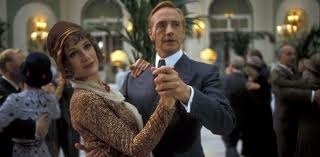
I read the Sayers saga as much for the relationship developing between Harriet and Peter as for the murders they solved together—needlessly complicated murders, be it added. The Nine Tailors was improbable, but Have His Carcass was downright silly. Spoiler: Why concoct an elaborate hoax that requires outdated razors, improbable disguises, horses, etc. etc., not to mention a couple of accomplices to pull it all off? If you're going to kill someone you've never met and have no easily-discovered motive for wishing him harm, why not just catch him alone in a dark alley and bop him over the head so that it'll look like a simple mugging? I know, I know: no complications, no book. All the same . . .
In honor of the new school year, there will be a quiz, so sit up straight, sharpen your pencils, and put on your thinking caps.
Question #1: What's the silliest plot—and by that I mean unintentionally silliest—you ever came across? (Dead authors preferred. If you're going to point a finger at someone living, please don't use names or book titles, just summarize the plot and tell me what made you wonder how it got published.)
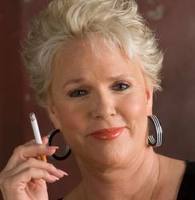 Speaking of relationships, when it comes to television, no matter how many car chases, serial killers, and exploding cars flash across the screen, I still prefer the interaction of family characters over plot. Two in particular have me hooked at the moment: Burn Notice and Memphis Beat. Both have male leads with the usual sidekicks and romantic entanglements, but both also have single moms. In Burn Notice, tough-as-nails Madeline Westen is played by Sharon Gless, while the more vulnerable Paula Ann Hendricks in Memphis Beat is played by Celia Weston. Both are single moms who try to keep themselves in their sons' lives.
Speaking of relationships, when it comes to television, no matter how many car chases, serial killers, and exploding cars flash across the screen, I still prefer the interaction of family characters over plot. Two in particular have me hooked at the moment: Burn Notice and Memphis Beat. Both have male leads with the usual sidekicks and romantic entanglements, but both also have single moms. In Burn Notice, tough-as-nails Madeline Westen is played by Sharon Gless, while the more vulnerable Paula Ann Hendricks in Memphis Beat is played by Celia Weston. Both are single moms who try to keep themselves in their sons' lives. 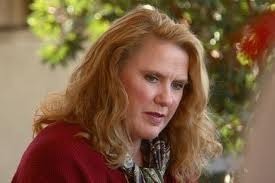
Television is diverting, but I'm a reader first, so here's Question #2:
Are there any mystery novels out there in which the main protagonist son keeps in close touch with his widowed/divorced mom other than Lord Peter and the dowager duchess? Or conversely, any series with a daughter and father?
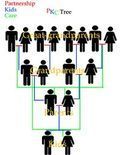 Question #3: While there have been son/father crime novels, where are the daughter/mother ones? For that matter, other than Nancy Martin's Blackbird sisters, Lisa Lutz's Spellman kids, or Charlaine Harris's Harper Connelly and her stepbrother Tolliver, are there any sibling mysteries you would recommend?
Question #3: While there have been son/father crime novels, where are the daughter/mother ones? For that matter, other than Nancy Martin's Blackbird sisters, Lisa Lutz's Spellman kids, or Charlaine Harris's Harper Connelly and her stepbrother Tolliver, are there any sibling mysteries you would recommend?
Or hey, how about cousins?
September 6, 2011
Water, water everywhere . . . .
Water, water everywhere
by Nancy Martin 
On the last morning of our visit to Las Vegas, I stepped into the hotel shower and turned the hot water handle to the max. But nothing came out of the shower head except a whoosh of air.
Okay, I thought. I'm standing here buck naked, sweaty and covered in stinky sun screen on the day Nevada finally runs out of water.
It was bound to happen eventually. (I've seen Chinatown. Haven't you?) The pipes hissed and rattled and burst out a few pathetic gushes of water before the shower eventually began to flow normally.
Just a little air in the pipes, the desk clerk assured me upon checkout.
Most people come home from Las Vegas with stories full of sin and debauchery, but we decided to meet our kids and grandchildren there. (Long story, but when you're transporting an infant and a toddler via airplane, you look for the shortest possible flight, and that's why the rest of us ended up in the city that never sleeps. Wait--that's New York. So what's Las Vegas? I seem to hear George Clooney's voice saying "America's playground." Or was that Brad Pitt?) We had a great time--swimming in the hotel pools--there was a wave pool as well as a lazy river--ideal for the kids--and gaping at various Las Vegas spectacles. The spectacles that are visible in daylight, that is, since we pretty much skipped the casino scene in favor of taking my grandson Bobby, who is obsessed with African animals, to see lions and tigers. (At the MGM hotel, there are always two lions on display in a big glass-enclosed cage along with their human trainers. Now.........do you think the tourists hang out there in droves to look at wild beasts or because they expect one of those humans to be eaten some day? Because that was my take on it.)
There are fountains all over Las Vegas. The fountain at the Bellagio ought to be one of the man-made wonders of the world. It's really amazing. Here's a cool article from The New Yorker about Mark Fuller, the guy who designs spectacular fountains around the world. It's one of the best New Yorker articles of the year, in my view. And here's a video that includes one of my top ten favorite songs:
The fountain is lovely. Or maybe my judgment is colored by the fact that the first few times I saw it was during the movie Ocean's Eleven, and the other scenery in that movie is drool-worthy.

But it's a strange experience to look at the desert landscape from the hotel room windows and think about where all the water comes from to keep the city going.
I've been thinking a lot about water lately. Who hasn't with all the video footage of Irene's aftermath? And now a new hurricane slowly grinding up from the Gulf of Mexico? I live in a city of three major rivers, and we've had plenty of rain this summer. Three weeks before the hurricane, we had a terrible flash flood and a street in my neighborhood was so suddenly flooded that cars in traffic were submerged. Four people died on their way home in what started out as an ordinary rush hour. Bizarre and tragic. And---in my opinion---an awful example of what happens when an old city's infrastructure isn't maintained.
Also, my brother---who has moved to the Caribbean---survived his first hurricane, although not without storm damage and a real concern about what might happen if the next one is a Cat 5.
My daughter Cassie moved to Texas last December, where they've been having a terrible drought. It rained for the first time in her town last week. That's almost . . . another planet from Pennsylvania.
My mother lives an hour north of here in the town where I grew up. That area is the beginning of the watershed for a lot of states, and--oddly enough--while we've had lots of rain here in Pittsburgh and certainly further east where the hurricane dumped so much water that Paterson, New Jersey still looks submerged, my mother's community is under a drought watch. She's not allowed to wash her car or water her lawn, and she saves kitchen rinse water to give her flowers a little drink now and then. She's making a little sacrifice so people downstream can drink.
Did you know a sixth of the world's population doesn't have access to clean drinking water? Isn't that astounding? Estimates say two million children die every year from water-borne diseases. Considering how much oil we can move around the world, it seems bizarre that we can't put clean water into even the most remote communities, doesn't it?
Summertime is the water season for us here in the USA. We go to the beach, to the lake, swim in pools and think nothing of taking a quick shower just to cool off.
If you're still enjoying a summer splash, think about donating a few bucks to the Red Cross. It takes several clicks, but c'mon, it's only a couple of minutes. They're trying to get water to Somalia and parts of Africa where it's really needed, and you can spare $10.
Meanwhile, tell me if you took a water-based summer trip. And are you ready to face work again now that we're all back at our desks? Because suddenly it's autumn where I live.
The Most Important Thing About College (that nobody tells you)
The Most Important Thing About College (that nobody tells you)
By Kathy Reschini Sweeney
Ready - here it is: Some People Shouldn't Go to College.
I am pausing now to let this really sink in. Also, I am wondering if I still have a job teaching tonight. (Kidding about the last part).
 College is an expensive, time consuming project. It's even more expensive this year, as state and federal grant, loan and other funding is cut so we can continue to pay for our wars all over the globe. Yes, there are other reasons, but that is the big one, and anyone who tries to talk about the economy or the budget without admitting it is lying to you.
College is an expensive, time consuming project. It's even more expensive this year, as state and federal grant, loan and other funding is cut so we can continue to pay for our wars all over the globe. Yes, there are other reasons, but that is the big one, and anyone who tries to talk about the economy or the budget without admitting it is lying to you.
It also takes longer than it ever has, because most places are cutting full-time faculty and class offerings, which makes it a real tetris project to schedule all the classes you need, in the right order, and get out in four years. It used to be that if someone took five or six years to graduate, it was because they were under the influence of something other than the thrill of learning.
 And then there is the biggest reason: a college degree is no longer any kind of guarantee of employment. Factor in the cost of a degree, the resultant student loans, and it's less likely than ever before that a college graduate can find a job that pays enough to cover school loans and still allow the grad to live independently.
And then there is the biggest reason: a college degree is no longer any kind of guarantee of employment. Factor in the cost of a degree, the resultant student loans, and it's less likely than ever before that a college graduate can find a job that pays enough to cover school loans and still allow the grad to live independently.
Now let's talk academics. Just because a person CAN get into college, based on their high school transcript and test scores, does not mean they should. Any teacher will tell you that we are still graduating kids from high school who do not have the academic background to do anything other than take tests. I could tell you a hundred stories, but will stick with my all-time favorite. In one of my first classes, on the very first day, I posed a series of basic questions to try to establish a baseline.
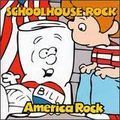 I asked the class of 50+ students to name the three branches of the U.S. Government. Only THREE of the students could do it, and one of those students was Canadian. After I recovered from the shock, I jokingly announced that I would have to bring in the Schoolhouse Rock videos. It is no longer a joke. I carry the DVD with me now, because I never know when I'm going to need it.
I asked the class of 50+ students to name the three branches of the U.S. Government. Only THREE of the students could do it, and one of those students was Canadian. After I recovered from the shock, I jokingly announced that I would have to bring in the Schoolhouse Rock videos. It is no longer a joke. I carry the DVD with me now, because I never know when I'm going to need it.
This is not an isolated incident, nor is it a reflection upon my university. Once I started telling the story, I heard things from other teachers that would make you blanche. You can blame NCLB or budget cuts or the fact that many public schools don't have enough textbooks or paper for everyone. It's still true.
So -- let's assume a young person wants to get a job that allows them to live independently (as in, not with their parents). Please do not assume that choosing the right college is your only choice. Ask some tough questions. Then consider that there are lots of professions that do not require a 4-year degree and provide a good living. The key is finding a job that fits your interests and skills, and provides services that are in demand.
Look for something that has a license. I don't mean medicine or law. I mean electricians, and manicurists and plumbers and appliance repair. When I was in high school, we had a Vo-Tech school as an option. By the time of high school graduation, my friends in the Vo-Tech were already at least half way to receiving a license, and had real-life experience in their chosen field. Guess who is actually going to retire at 65?
 A disclaimer - I wanted to go to the Vo-Tech and be a beautician. My parents forced me to go to college. No argument that it turned out well for me, but there are many days when the thought of packing up my tools and going home holds great appeal. Although, given me and my family, I would probably be running some kind of "Fantastic Kathy's" chain now, and worried about INS compliance. I would also totally be wearing feathers in my hair, because they are very cool and you can wash you hair and everything with them in, but that is another story.
A disclaimer - I wanted to go to the Vo-Tech and be a beautician. My parents forced me to go to college. No argument that it turned out well for me, but there are many days when the thought of packing up my tools and going home holds great appeal. Although, given me and my family, I would probably be running some kind of "Fantastic Kathy's" chain now, and worried about INS compliance. I would also totally be wearing feathers in my hair, because they are very cool and you can wash you hair and everything with them in, but that is another story.
All kidding aside, I think education is important. However, a college education has become much more expensive. There are other, more efficient ways, to prepare for the workforce. I'll be talking to groups of high school kids during the next several months about this (what were they thinking, asking me to do that?!) and I am going to try to explain it as a cost-benefit analysis. Even if you have the financial means, an undergraduate degree no longer provides the same return on investment as it did in the past.
What do you think? And let me know - what else should I tell them?
September 4, 2011
In Labor
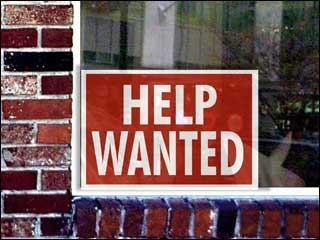
Hank Phillippi Ryan: So, the unemployment rate is more than nine percent, and that means a shocking one in ten of us is out of a job. That means nine in ten of us are counting blessings.
In my family, the moment we turned 16 we had to get a job. Do I have to, I wailed? Nope, my step-father said. Only if you want to live at home and eat at home. I went from door to door, applying for work, and finally got hired (this was in 196--7?) at a dry cleaners.
 The guy behind the counter came out with a form for me to fill out, and I picked up a pen to do so.
The guy behind the counter came out with a form for me to fill out, and I picked up a pen to do so.
Left handed? he said.
Yup, I said.
Sorry, he said. I can't train you if you're left-handed.
No job. And, as it turned out, no summer of being exposed to PCE and TCE and other hideous carcinogens. I finally got hired at the Dairy Queen, where the scariest thing was calories.  The world is an amazing place.
The world is an amazing place.
I'd planned on being--in order: a cowboy, a waitress, a stewardess,
a ballerina, an actor, a geneticist (until I attempted chemistry) a lawyer, 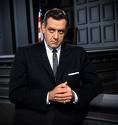
the lawyer for the mine workers union, an English teacher, a disc jockey.
The reality: I've been a proofreader at a publishing company, a saleperson at a dime store, a clerk in a record store (my fave) and then  an organizer in a political campaign,
an organizer in a political campaign,
a legislative aide in the US Senate, an editorial assistant at Rolling Stone Magazine, and then, for the past 35 years (!) a TV reporter.
Oh, and an author! (Lovely.)
So on this Labor Day, we wonder: what do you do for a living? Is it what you thought you would be? Did your labor life turn out the way you planned?
And if you're looking for a job, the Tarts are here to help. Feel free to say so--and list your qualifications! Maybe the power of Lipstick will create a connection.

